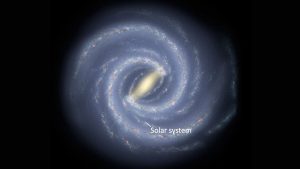Putin to oversee massive nuclear drills tomorrow as Western leaders warn of ‘false flags’ to invade Ukraine
US Secretary of State Antony Blinken has agreed to meet Russian Foreign Minister Sergei Lavrov late next week – provided Moscow doesn’t invade Ukraine.
Efforts are continuing to prevent a conflict, amid fears that Russia is increasingly close to being able to mount an invasion.
Russia wants guarantees from the West, including the assurance that Ukraine will never join NATO, but the West is only willing to discuss arms control and confidence-building measures.
The Kremlin describes invasion fears as hysterical, but US President Joe Biden warned on Thursday that they could be preparing an excuse to move in.
Mr Biden said: “We have reason to believe they are engaged in a false flag operation to have an excuse to go in.
“Every indication we have is they are prepared to go into Ukraine and attack Ukraine.”
Mr Blinken echoed these words, saying: “It could be a fabricated so-called terrorist bombing inside Russia, the invented discovery of a mass grave, a staged drone strike against civilians, or a fake – even a real – attack using chemical weapons.
“Russia may describe this event as ethnic cleansing, or a genocide.”
Russia’s deputy foreign minister Sergei Vershinin said Mr Blinken’s comments were regrettable and dangerous.
The US president has said a number of times that Russia could invade Ukraine within days.
Mr Biden is expected to host a call later today with the leaders of Canada, France, Italy, Germany, Poland, Romania, the UK, the European Union, and NATO.
In other developments:
• UK Prime Minister Boris Johnson is expected at a security conference in Munich this weekend, along with Foreign Secretary Liz Truss and Defence Secretary Ben Wallace
• Belarusian President Alexander Lukashenko will meet Russian President Vladimir Putin on Friday to decide how much longer Russian troops will remain in his country for military drills
• The UK, Poland, and Ukraine agreed to “intensify” work to “strengthen democracy” in eastern Europe, including work on “defence and security, sanctions, energy security and countering disinformation”
• White House spokesperson Karine Jean-Pierre said that Russia had sent an extra 7,000 troops to the Ukrainian border over the past 24 hours, despite Russia’s defence ministry saying some of its military units had left the area.






